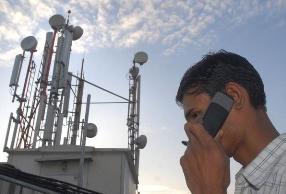  Sector regulator Trai has rejected demand of telecom operators to withdraw the order mandating compensation to customers for up to three call drops in a day, Reports PTI.
Telecom operators, through their respective associations namely COAI and AUSPI, had written to Trai on October 27 to withdraw the regulations and asserted that it was not possible to make a network free from call drops.
The operators, which had flagged various issues regarding implementation of the regulations, warned that mobile tariffs would go up if they were forced to pay for dropped calls.
The Authority, however, has rejected the argument given by operators.
"The issues raised in your representation have already been considered by the Authority before issuing the regulations and, therefore, your request to withdraw the Telecom Consumers Protection (Ninth Amendment) Regulations, 2015 has not been agreed to by the Authority," Trai said in separate letters to COAI and AUSPI.
COAI and AUSPI represent all GSM and CDMA operators in the country.
The Telecom Regulatory Authority of India (Trai) last month mandated that telecom companies from January 1 should compensate users at the rate of Re. 1 per dropped call, with a ceiling of three dropped calls per day (or, Rs. 3 per day).
Trai said it had held extensive consultations with the stakeholders, including an open-house discussion in New Delhi in this regard.
"AUSPI, COAI and their member service providers participated in the open-house discussion and also submitted their written comments to the Authority," the letter said.
Trai said it issued the regulations after considering comments of all the stakeholders. COAI, which represents GSM telecom players, had earlier said the regulation may force the industry to shell out about Rs. 150 crores every day even if half of the consumer base in the country faces the call drop issue.
The two industry bodies had said the regulation was an invitation for limitless misuse and gaming of the system and as per estimates, it will lead to a hit of 3 percent on revenues and 7-8 percent on mobile Ebitda.
PTI |